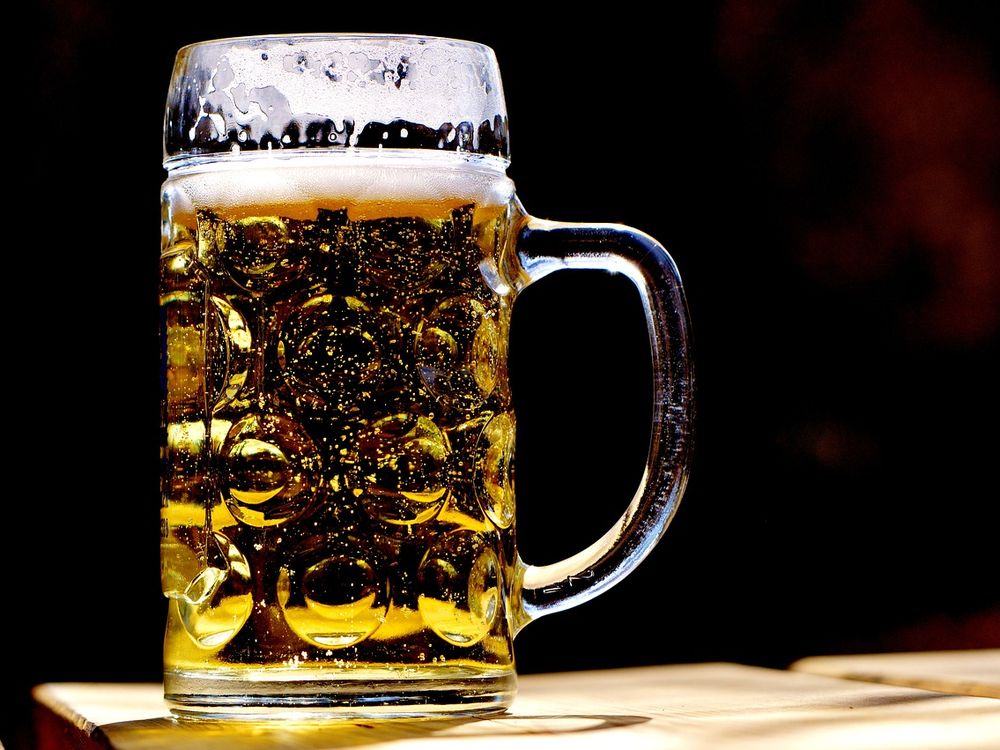Can A.I. Make Beer Taste Better? Scientists Test a Model That Recommends New Flavors
[ad_1]
A new machine learning model may be able to help brewers save time and money on consumer trials, make more consistent products and improve their recipes, scientists say.
Pixabay
Brewers use just four ingredients—water, hops, yeast and malted grains—to produce a wide array of beer styles, from tart sours to nutty ambers and bitter IPAs. And while they’ve spent millennia refining their recipes to achieve the perfect combinations of flavor, mouthfeel and aroma, scientists say artificial intelligence (A.I.) may be able to help make beer taste even better.
Researchers in Belgium spent more than three years creating a machine learning model that can use a beer’s chemical makeup to predict how good it will taste, they reported Tuesday in the journal Nature Communications. The model can also offer recommendations for how to improve a beer’s flavor.
The team isn’t suggesting that breweries get rid of their human employees and replace them with computers. Rather, they argue the model’s insights could help brewers adjust their recipes, produce more consistent beers and save time and money on consumer trials, among other benefits.
“I really see it as a tool,” says study co-author Kevin Verstrepen, a microbiologist at KU Leuven university in Belgium, to New Scientist’s Alex Wilkins. “It’s not taking away the art of making good beer in an artisanal way.”
To develop the machine learning model, the researchers studied the chemical makeup of 250 commercial Belgian beers representing 22 beer styles. Among them were lagers, lambic beers, tripels, blonde ales, non-alcoholic beers and fruit beers. For each drink, they recorded attributes such as the amount of sugar, the pH, the alcohol content and the concentrations of more than 200 chemical compounds that create different flavors and aromas.
They also asked a panel made up of 16 trained tasters to describe each beer and gathered data from more than 180,000 public reviews on the online platform RateBeer.
“It was a truly Herculean effort,” says study co-author Miguel Roncoroni, also a microbiologist at KU Leuven, in a statement.
Using all these data sources, researchers trained a machine learning model to predict how a beer would taste—and how desirable those flavors would be to consumers—by studying its chemical makeup. They also asked the A.I. how specific beers might earn higher ratings.
To test the model’s accuracy, they implemented its recommendations by adding chemical compounds to existing commercial beers. Then, they asked the panel of trained tasters to compare the new, A.I.-enhanced brews with their unaltered counterparts, without knowing which drink was which.
The chemically spiked beers—both alcoholic and non-alcoholic—had “significantly improved overall appreciation” among the panelists, the authors write in the paper.
These results suggest the machine learning model could be particularly useful for improving non-alcoholic beer, which is growing in popularity but still largely has a reputation of being “pretty terrible and not worth drinking,” as Andy Crouch writes for All About Beer. That’s all starting to change as more and more breweries jump on the NA bandwagon, but A.I. might be able to help supercharge that forward progress.
Machine learning models could also propose ways to tailor beers for specific groups of people: Older adults, for example, tend to dislike complex combinations of flavors or textures. “There’s so much that we can explore there, especially when we’re looking at different populations and trying to come up with specific products for them,” Carolyn Ross, a food scientist at Washington State University who was not involved in the study, tells MIT Technology Review’s Rhiannon Williams.
The researchers don’t think brewers should start adding chemical compounds to their existing beers, like they did in their experiments. Instead, they’re hopeful the model’s recommendations will help brewers tweak their recipes to produce the desired compounds in the final product.
“The A.I. models predict the chemical changes that could optimize a beer, but it is still up to brewers to make that happen starting from the recipe and brewing methods,” Verstrepen tells the Guardian’s Nicola Davis.
[ad_2]


